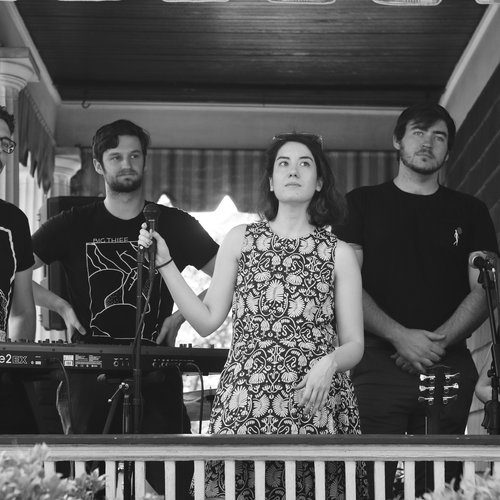I was taught to respect the police from a very young age. I grew up (and still live) on Long Island, where everyone’s related to a cop and where you’ll find Blue Lives Matter bumper stickers in even the most liberal areas. The police marched in Memorial Day parades, organized barbecues in the park, gave stern talks about stranger danger to elementary schoolers. A kid in my second-grade class proudly announced that his dad was a police officer during show and tell, and showed off an old walkie-talkie he once used. I even dressed up as an officer for Halloween one year, complete with a pair of plastic handcuffs; I put them around my own wrists and pretended I was a drunk guy getting arrested on COPS, and my mom was not amused.
When I was in third grade, we were taught about Martin Luther King, Jr., and what I remember most clearly was the horror I felt reading about police brutality against civil rights protesters. Under orders from men like George Wallace and Bull Connor, the police cracked the skulls of peaceful protesters, mauled them with dogs, and attacked them with fire hoses strong enough to strip bark off an oak tree.
I didn’t know how to express it at the time, but I felt like I had been lied to. The officers who marched in parades, spoke to children, shook my awestruck hand in line at the deli–were they capable of such atrocities? Had they been capable of them this whole time? And would they commit them with a smile, eat dinner with their families, and sleep soundly through the night?
People who are much smarter and worldlier than I am have made the case for defunding the police, or even abolishing the police altogether. I don’t know how I feel about that; I am not a radical, and I do not claim to be one. But even a boring, milquetoast liberal like me can see that it is an institution in dire need of reform at every level.
“Joanie”, a haunting new song by the Brooklyn-based band Demeter, deals with an overlooked issue related to the police: namely, the prevalence of domestic violence in officers’ families. Kate Rivera, the singer-songwriter who fronts Demeter, wrote “Joanie” as a memorial to a family member, the abused wife of a police officer who was eventually murdered by her husband. “Joanie” is a story in three parts, and it’s structured so that you don’t fully understand the situation until the end.
Still, you can tell that something’s wrong from the moment the song starts. It starts with an ominous, chugging bass line, its hypnotic repetition drawing you into a world of grey apartments and frightened, ragged breaths. It gets you in the right mindset for the first verse, where Rivera sings from the abusive husband’s point of view as he tries to coax Joanie into opening their bedroom door.
Here, Rivera demonstrates her impressive control over her lyrics and vocal delivery. Any piece of media about abusive relationships has to be very careful, as one wrong move will make it feel like a Lifetime Movie of the Week. But Rivera is too smart and too skilled to dip into melodramatic cliches. She doesn’t scream, she doesn’t bellow curses through the door, she doesn’t adopt that hammy drunken slur that’s become Hollywood shorthand for “this person is an abuser”.
Instead, her voice is low, taut, and coiled with menace, making us listen closely for subtle shifts in tone. Take the two different ways she delivers “open the door”. The first is a hushed, needy come-on, with a hint of feigned playfulness in the way Rivera slurs the word “door”. The second is a low, steely monotone, drunken horniness giving way to a cold demand. It made me flinch when I first heard it, and you get a sense of what this man is like even before he admits to hitting Joanie’s “pretty head”.
The second part of the song takes the perspective of Joanie’s support system, who warn her against staying with her abuser. We get a sense of just what a piece of work this man is: he’s a drunk, he’s a liar, he uses his authority as an officer over other people. He’s positioned as something dreadful, even inhuman: “you shot him once, he wouldn’t die,” Rivera sings, as though bullets would just bounce off his badge. Meanwhile, the music builds, bubbling up from a simmer and growing in intensity.
Then, Rivera starts to sing as Joanie herself, and the song boils over. Shifting from that creeping bass line into something immediate and bracing, the music swells around Rivera as she reveals the reason why Joanie stayed. “But if I go, who will take the children?” she cries. “But if I go, where will we go?” It illustrates the tragedy of this story and shows how well and truly trapped Joanie is. If she leaves with her children, they’ll be in an uncertain environment with a single mother, but she could never leave them with her abuser. And so she stays, eventually leading to her doom.
“Joanie” doesn’t blame the victim, it doesn’t provide easy answers, and it doesn’t exploit domestic violence for the sake of shocking the audience. Instead, it deals honestly with an under-discussed topic that’s only grown more resonant in the past few months. It’s a song about power, authority, and the evil things that men do to women with nowhere to go. If the song feels like a nightmare, that’s because it’s a nightmare that Joanie, and countless other women like her, live through every day, with no guarantee of waking up.







